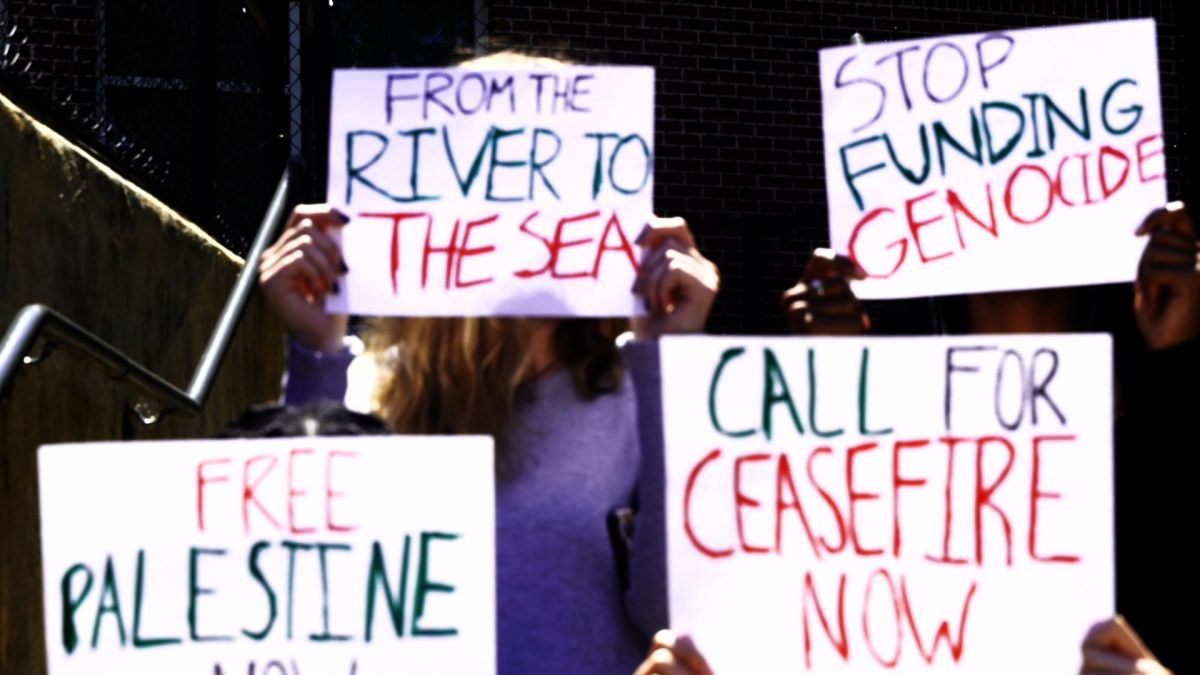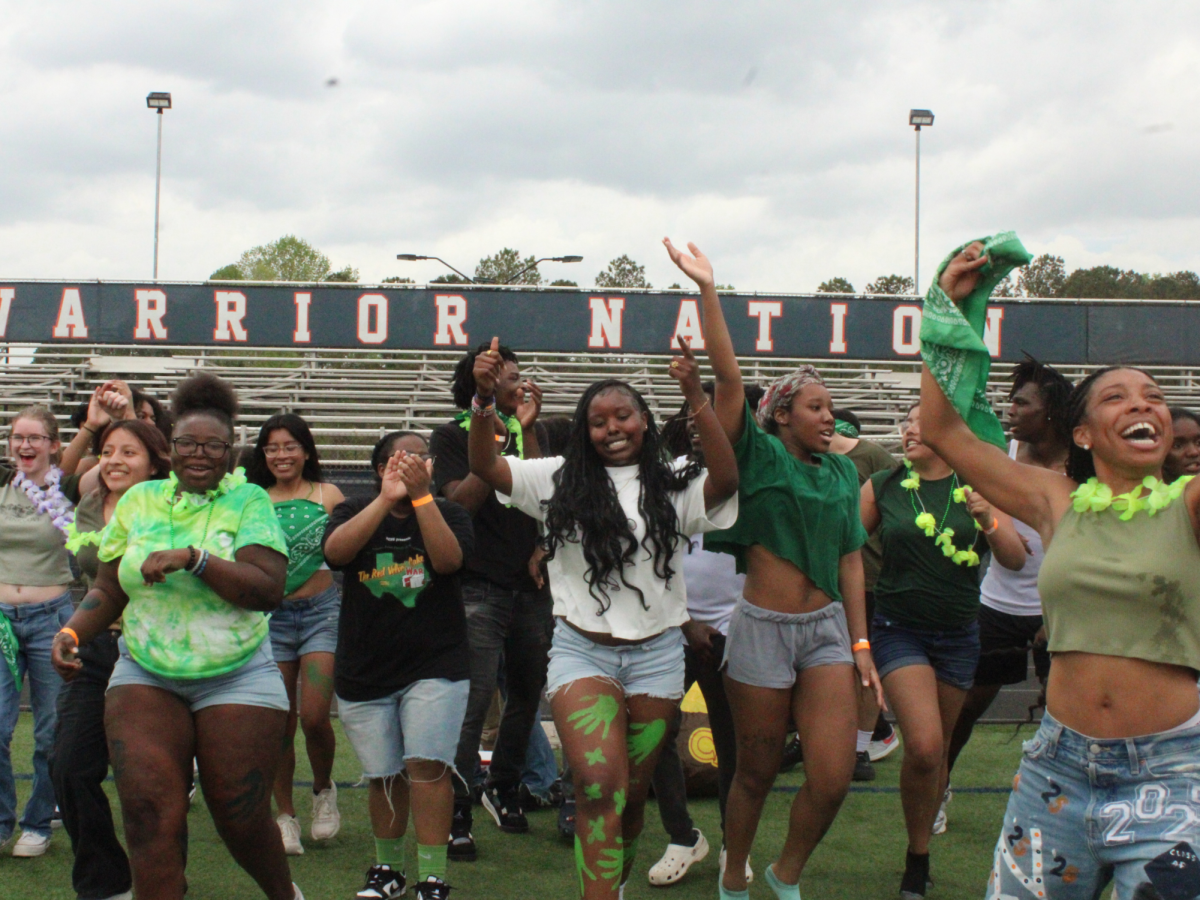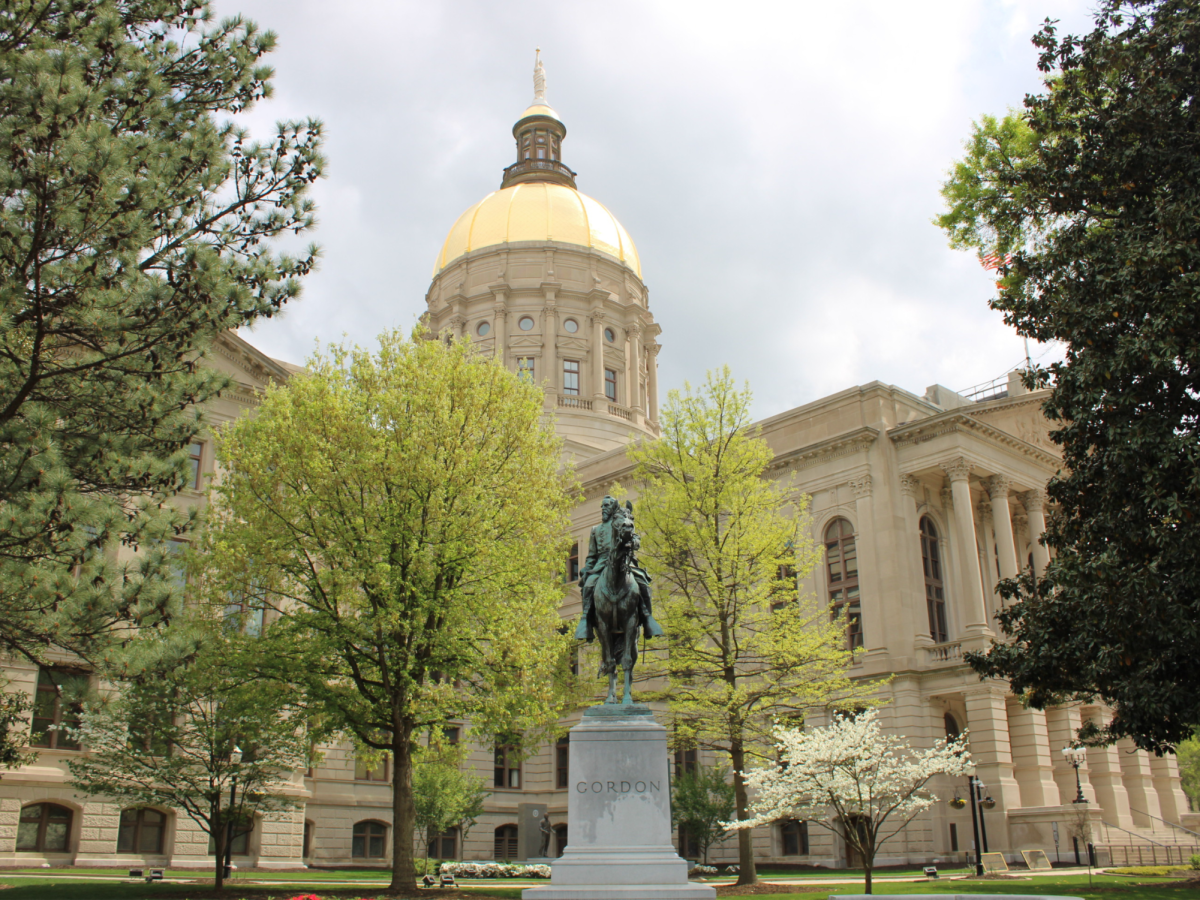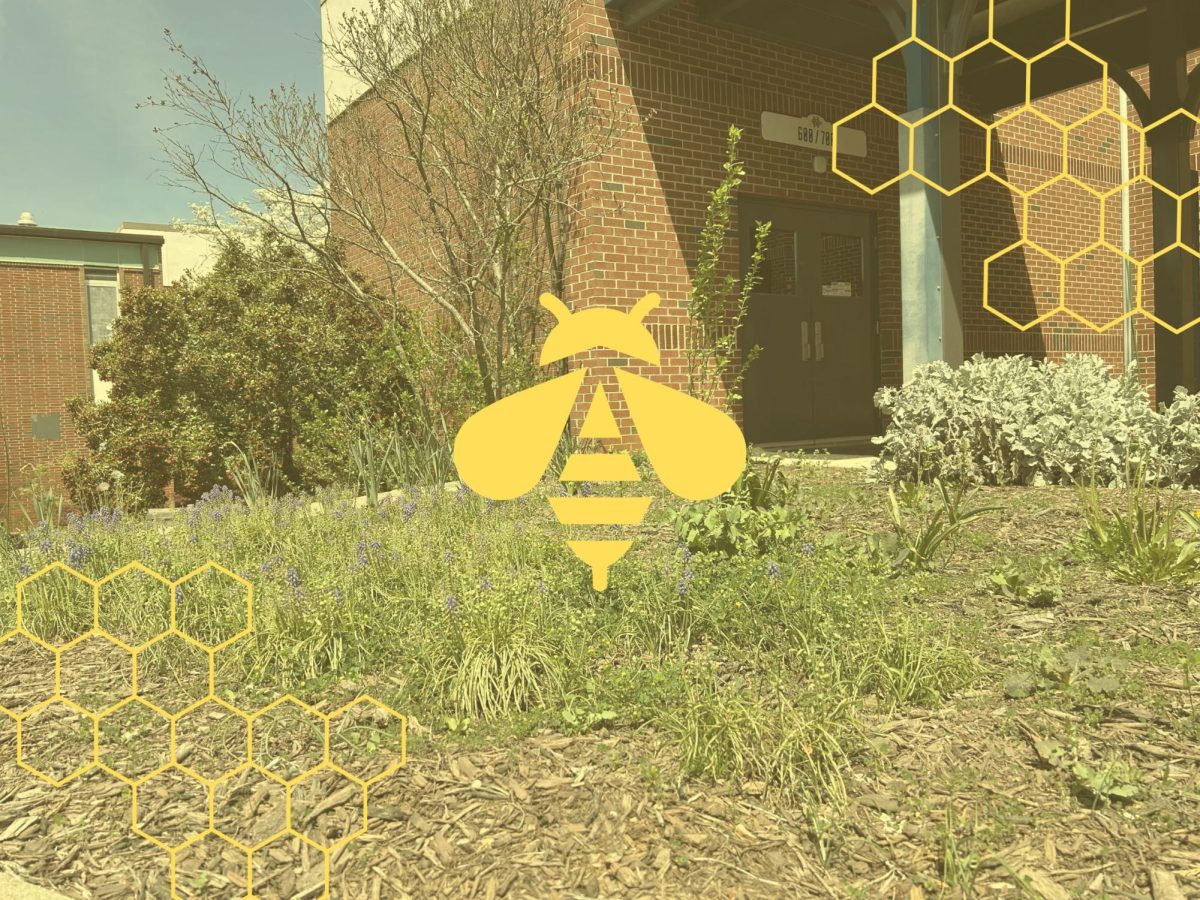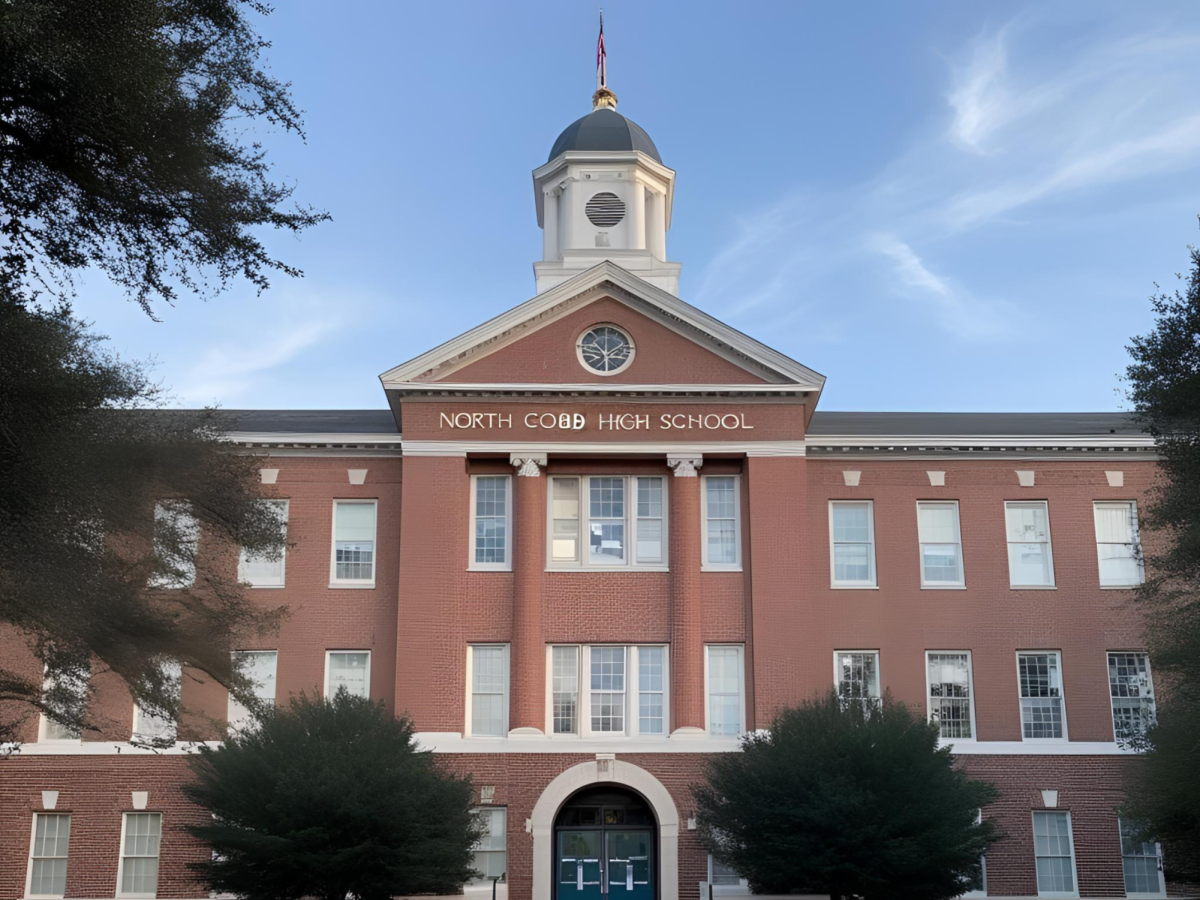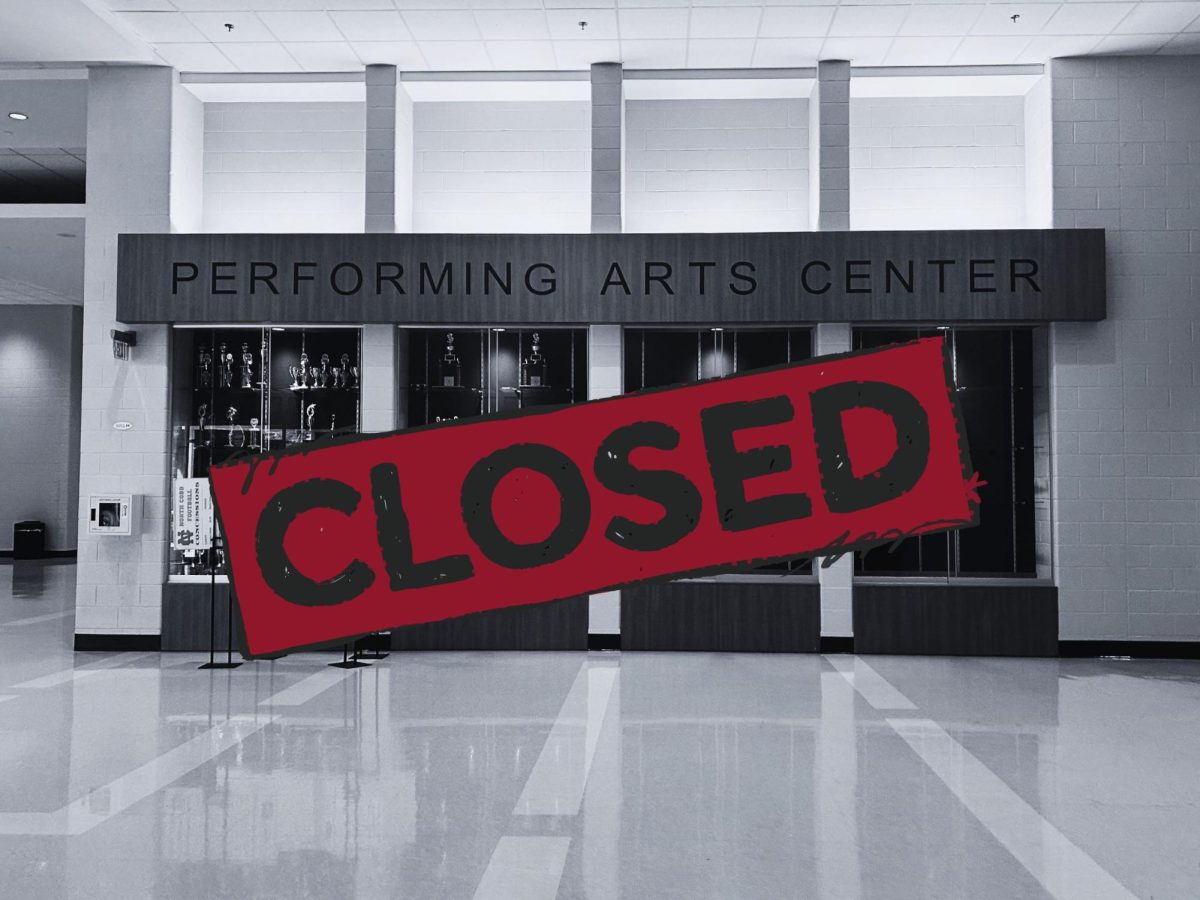As the Israel-Palestine conflict rages on, thousands around the world share their opinions on the regional battle. In the education spectrum, college campuses have begun to experience a series of pro-Palestian student protests, resulting in tensions between universities and their student demonstrators. Protestors have called on their universities for public acknowledgment of a genocide happening in Gaza and to loosen their ties to Israel.
The protest movement’s origins trace back to Columbia University, where last week the New York City police arrested over 100 student demonstrators. Since then, other prestigious college hubs have begun to show their solidarity and the movement has spread to schools across the United States. In Columbia’s neighboring college, New York University (NYU), police in riot gear broke up a pro-Palestinian encampment Monday night after the college told demonstrators to clear the campus’ plaza by 4:00 pm.
“The university [Columbia] thought they could call the police and make the protesters go away. Now we have twice as many protesters. The students have experienced a ratcheting up of repression that has prompted them to escalate with their own tactics now,” an associate professor at Columbia Joseph Howley said.
Colombia’s president Minouche Shafik released an announcement Tuesday evening, which marked the seventh day of rallies. Shafik ordered student protest organizers to reach a consensus to disassemble the pro-Palestinian encampment. If no agreement ensues, Shafik announced they will consider alternative options for clearing the protest. On Wednesday morning, student protestors agreed to decrease the amount of tents on campus but will continue protesting.
Similarly, students in collegiate institutions along the East Coast began protests calling for them to sever their ties to Israel and companies that support the country’s military efforts. At Harvard University, students streamed into the Harvard Yard on Wednesday to protest Israel’s siege on Gaza and against the university’s suspension of the Harvard Undergraduate Palestine Solidarity Committee student group. Student demonstrators at Yale University demanded the school to divest from military weapon manufacturers. In the Boston area, protest encampments arose on the campuses of Massachusetts Institute of Technology (MIT), Tufts University and Emerson College, calling for their schools to advocate for a ceasefire. However, in the nearby state of Michigan, students set up camp at the University of Michigan to demand that the institution disinvest from companies that financially support Israel. Meanwhile, student activists assembled on Ohio State University’s campus and police arrested over 30 pro-Palestinian protestors Thursday night.
In the Peach State, students at Atlanta’s Emory University began to gather Thursday morning to establish an encampment in solidarity with the Palestinian people and protest the university’s compliance with a Palestinian genocide. Organizers behind the encampment reported police using tear gas, pepper bullets and tasers against protestors.
Further down south, the movement has shifted to universities in the Lone Star state. Texas police and state troopers have arrested demonstrators at the campus of the University of Texas at Austin. The school suspended the student organization Palestine Solidarity Committee Thursday, a day after the mass arrests.
Moving across the U.S., the growing movement has made its way to the West Coast. Students at Sproul Hall on the University of California Berkeley campus protested to push their university to end all ties to Israeli institutions. California State Polytechnic University, Humboldt closed their campus off throughout the weekend after student activists occupied campus buildings and confronted police who wielded riot gear. On Wednesday, police detained 93 demonstrators on the University of Southern California (USC) campus and closed the campus off from the public until further notice amid the protests. The USC pro-Palestine protests come less than a week after earlier demonstrations fought against the school’s decision to cancel the speech of the class of 2024 valedictorian Asna Tabassum, citing her pro-Palestine social media presence as anti-Semetic or anti-Zionist. The California institution announced the cancellation of the main May commitment ceremony Thursday due to the rise of protests and safety concerns.
“I think it’s really sad to see leading universities like USC that have prestige and such academic rigor do this. The students are smart, that’s why they are exercising their rights. They know their rights. They know what they can do and what they can’t do. It’s sad to see that the protests are happening in the first place especially since the valedictorian is a Muslim girl, who’s exercising her right and she has a personal connection to her. It’s just ridiculous that they can cancel it [the speech] in general and especially try to silence her voice because she is speaking from a place of emotion because it is connected to her,” magnet junior Neneh Bah said.
Although police ended standoffs between student protestors and their school’s administrations, the leadership of respected institutions saw themselves struggling to calm the rising protests. Colleges have stated their allowance of peaceful protests on campus, yet student protestors encounter struggles from law enforcement resulting in arrests. Columbia announced on Monday that the rest of their semester will move to hybrid learning, citing safety concerns, leading to calls demanding tuition refunds. As Harvard closed off their Harvard Yard, students still proceeded to flood the area.
Cracks and failures of prestigious college administrator leadership have brought on criticism from politicians. On Wednesday, Republican Speaker of the House Mike Johnson visited the campus of Columbia University to call for the resignation of Columbia’s president amid the accusations of anti-semitism surrounding the protests. Johnson brought republican support with New York representatives Virginia Foxx, Nicole Malliotakis, Anthony D’Esposito and Mike Lawler. During his press conference on the Ivy League campus, protestors and a crowd of students heckled him in the middle of his remarks.
The Democratic party remains divided on its stance on the Israel-Palestine conflict and has resulted in diverse reactions to the ongoing college protests. On Monday, Jewish Democratic representatives Josh Gottheimer from New Jersey, Kathy Manning from North Carolina, Jared Moskowitz from Florida and Dan Goldman from New York walked with Jewish students on Columbia’s campus to advocate for their protection and condemn anti-semitism. Likewise, Minnesota representative Ilhan Omar applauded student protestors calling for a ceasefire at the University of Minnesota and Columbia and criticized Johnson for visiting the campus. Since the October 7th attack that sparked the Israel-Palestinian conflict, President Joe Biden has provided support to the military efforts of Israeli Prime Minister Benjamin Netanyahu. Since the rise of the college pro_Palestine movement, Biden has publicly condemned anti-Semitic protests and the lack of understanding of the situation in Palestine.
“I have the proud honor of representing this incredible university in Congress and I have to tell you I am incredibly moved by your courage and bravery as a student body in putting your own bodies on the line to stand in solidarity to end the genocide that is taking place in Gaza at this moment. I have to tell you it’s been incredibly painful for the last five days to see the discovery of a mass grave of more than 200 Palestinians in Khan Younis that our media, our elected politicians, our president, and every single leader is spending their time and energy in talking about the protests,” Omar said.




